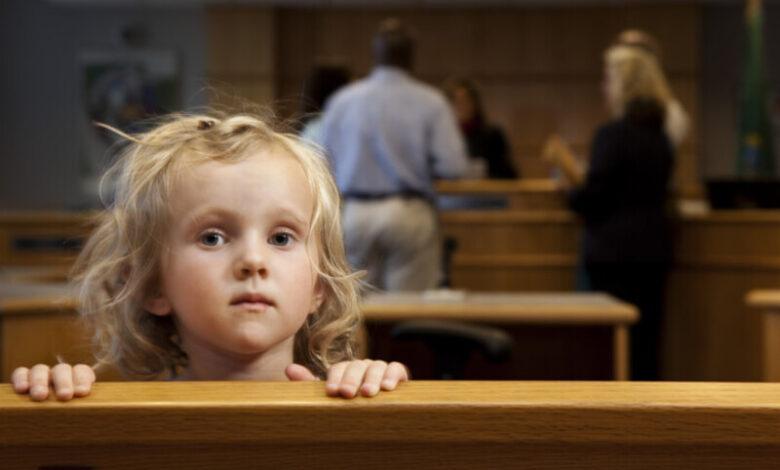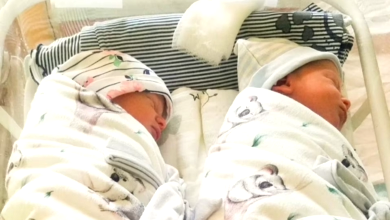Child-friendly justice: from July 1, the pilot initiative will be expanded to the entire territory of Ukraine

Russia’s full-scale invasion of Ukraine not only caused large-scale destruction, but also sharply exacerbated the issue of protecting children’s rights within the justice system. Thousands of Ukrainian children witnessed or became victims of violence, experienced the loss of parents, forced relocation, and psychological trauma. At the same time, a significant part of minors who came into contact with the law enforcement system – as witnesses, victims or suspects – found themselves in a situation where the system itself was not ready to work with the child as a subject with vulnerable needs. The problem did not appear with the war, but it was the war that radically highlighted it. And in this context, the expansion of the pilot project on the introduction of child-friendly justice standards to the entire territory of Ukraine from July 1, 2025 is not a cosmetic initiative, but a deep systemic response to the fact that children in crisis conditions should not only be protected, but also heard.
The principles underlying the new model
Ukraine continues to consistently implement international standards for the protection of children’s rights in the justice system. By order, signed by the Deputy Prime Minister for European and Euro-Atlantic Integration — Minister of Justice Olga Stefanishyna, together with the leadership of the Prosecutor General’s Office, the Ministry of Internal Affairs and the Ministry of Social Policy, the project of implementing standards of child-friendly justice officially goes beyond the pilot format and covers the entire territory of the country.
Launched back in 2023 in six regions, and later expanded to twelve regions in 2024, the project gradually turned into a comprehensive national initiative. As of July 1, 2025, all regions of Ukraine will be required to implement uniform standards for working with children in the criminal justice system. This decision was made as part of a systemic course to strengthen the protection of children’s rights, especially those who have come into conflict with the law or become victims of crimes.
The reform is based on principles consistent with international legal norms, recommendations of the UN Committee on the Rights of the Child, OSCE reports and the experience of the Council of Europe. Among the main principles:
– provision of free, multidimensional assistance to children — legal, psychological, medical;
– professional training of specialists — employees of investigative units, prosecutors, judges, psychologists, social workers who work with children;
– creation of safe, child-friendly conditions for conducting procedural actions, in particular interrogations, surveys, investigative experiments;
– introduction of restorative justice programs – alternatives to traditional criminal prosecution in case of non-violent offenses by minors.
Olha Stefanishyna emphasized that the implementation of this model is a continuation of Ukraine’s course towards European integration, namely, the adaptation of the justice system to standards where child protection is at the center:
“We implement leading international standards that put the needs of the child in the center of attention and ensure that their rights are respected at all stages of justice. This is a systemic transformation that brings us closer to the best European practices in the field of child protection, and we continue to work in this direction.”
What does the National Action Plan envisage?
The signed order approved the Action Plan until January 2026, which contains a step-by-step road map for the implementation of the Standards in each region. It covers a number of areas for which not only the Ministry of Justice is responsible, but also other central bodies of the executive power. Among the main tasks:
– implementation of training programs for specialists involved in criminal proceedings involving children;
– development of mechanisms for monitoring the results of the application of restorative justice programs;
– improvement of the conditions of detention of minors in detention facilities;
– provision of leisure time and socialization of children in places of deprivation of liberty;
– provision of guaranteed legal assistance to children who are under investigation or on probation.
The idea is not only in the formal observance of rights, but in building a system where justice does not injure the child, but helps him return to a full life, provided that the circumstances allow it.
Who supports the implementation of the reform
The project is implemented in partnership with the Council of Europe, the Representative Office of the United Nations Children’s Fund (UNICEF) in Ukraine, as well as with the participation of international human rights and specialized expert structures. The methodology is based on the principles of the Strategy of the Council of Europe on the rights of the child, as well as the Standards of the Council of Europe on child-friendly justice.
Preparation, training and methodical support are engaged not only by state institutions, but also by public organizations that already have experience in implementing programs in the field of restorative justice, working with children in crisis conditions, resocialization, etc.
Why is this important right now?
In the face of full-scale war, children have become more vulnerable than ever. On the one hand, they suffer from war crimes – murders, kidnappings, deportations. On the other hand, they are increasingly faced with injuries, social isolation, psychological disorders, loss of family, housing, normal access to education.
In this context, any interaction of the state with the child, especially within the framework of the justice system, should not deepen the traumatization. The goal of the reform is not punishment as an end in itself, but recovery through dialogue, understanding, support and respect for the child’s personality.
Extending the standards of child-friendly justice to the entire territory of Ukraine is an attempt to build a future in which the child is not just a participant in the case, but a full-fledged subject with the right to protection, dignity and a future. And it is this model of justice – not punitive, but humane – that is a sign of a mature legal system, towards which Ukraine is moving despite the war.





